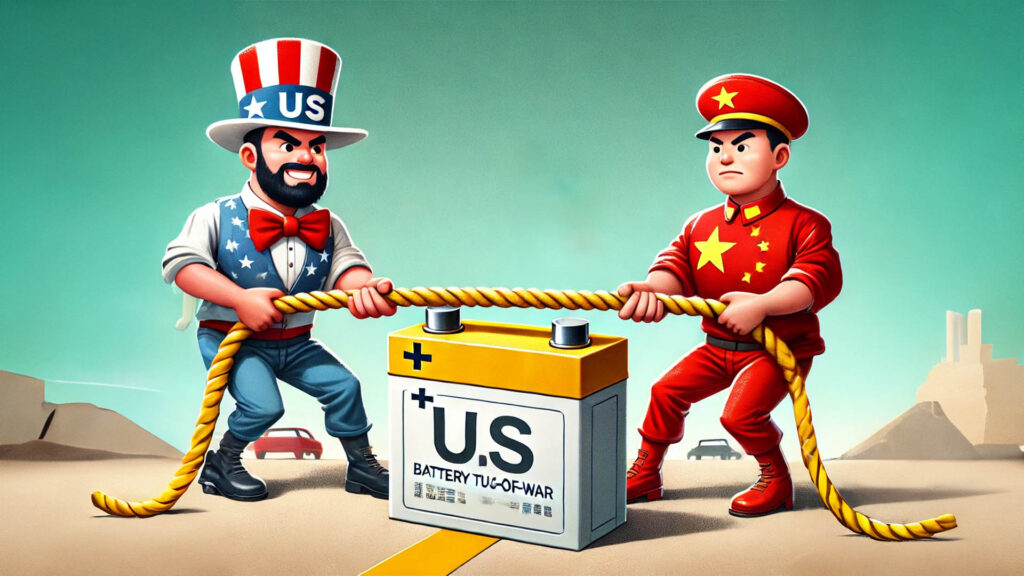The US government has approved a $755m loan for Novonix (ASX:NVX) to build a large-scale synthetic graphite facility in Chattanooga, Tennessee, aimed at reducing reliance on China’s battery supply chain.
The Department of Energy’s conditional loan will support the construction of what is set to be the first large-scale synthetic graphite factory in North America. Once operational in 2028, the facility is expected to produce enough graphite to supply 325,000 electric vehicles (EVs) annually.
Novonix CEO Chris Burns, a former Tesla engineer, said the project addresses critical supply chain vulnerabilities. “Recent announcements from China to further scrutinise the export of battery-grade graphite to the United States highlight the importance of domestic production of high-performance, battery-grade synthetic graphite.”
China currently controls more than 95% of global graphite supply, covering both natural and synthetic graphite. It also dominates advanced processing technologies that convert raw graphite into battery-ready material. Recent Chinese export restrictions on battery-grade graphite have heightened concerns for EV manufacturers dependent on imports.
Graphite is a key component in EV batteries, and sourcing it domestically is crucial for automakers to qualify for the $7,500 US tax credit under President Joe Biden’s Inflation Reduction Act (IRA). Of the critical battery materials, graphite is seen as one of the hardest to secure outside of China.
Novonix, which produces synthetic graphite prized for its ability to improve battery charge speed and lifespan, has received backing from industry heavyweights. South Korea’s LG Energy Solution holds a stake in the company, while Novonix has also secured supply deals with Panasonic and Stellantis. Following news of the loan, Novonix shares rose 9% on Tuesday.
The Tennessee project is part of a broader push by the US to bolster its clean energy supply chains and reduce dependency on foreign sources. It comes as other graphite suppliers face operational challenges. Syrah Resources (ASX:SYR), which operates a graphite mine in Mozambique, has struggled with production disruptions caused by protests, leading to a loan default. Syrah has since entered talks with US lenders for financial support.
Novonix’s Burns noted that China’s dominance in battery materials was evident during his time at Tesla. “The reliance on one territory for critical components is a glaring issue for the global EV sector, regardless of geopolitics,” he said.
To help automakers adjust, the US government has introduced a grace period through 2027 that allows EVs using Chinese graphite to qualify for tax credits. But there is uncertainty about future IRA provisions, especially with the looming 2024 US presidential election. A potential Trump administration could review or revoke these subsidies, which could impact EV manufacturers’ financials.
Burns, however, remains optimistic, emphasising the bipartisan nature of efforts to secure critical minerals. He said the funding for Novonix’s Tennessee facility is “set” and believes battery supply chains will remain a national priority. “If you step away from the noise, we continue to see that the battery and critical minerals sectors will be supported,” Burns said. “The question is how.”
Novonix’s new Tennessee facility is a significant step toward US energy independence, representing a strategic move to fortify battery supply chains amid rising geopolitical tensions.

